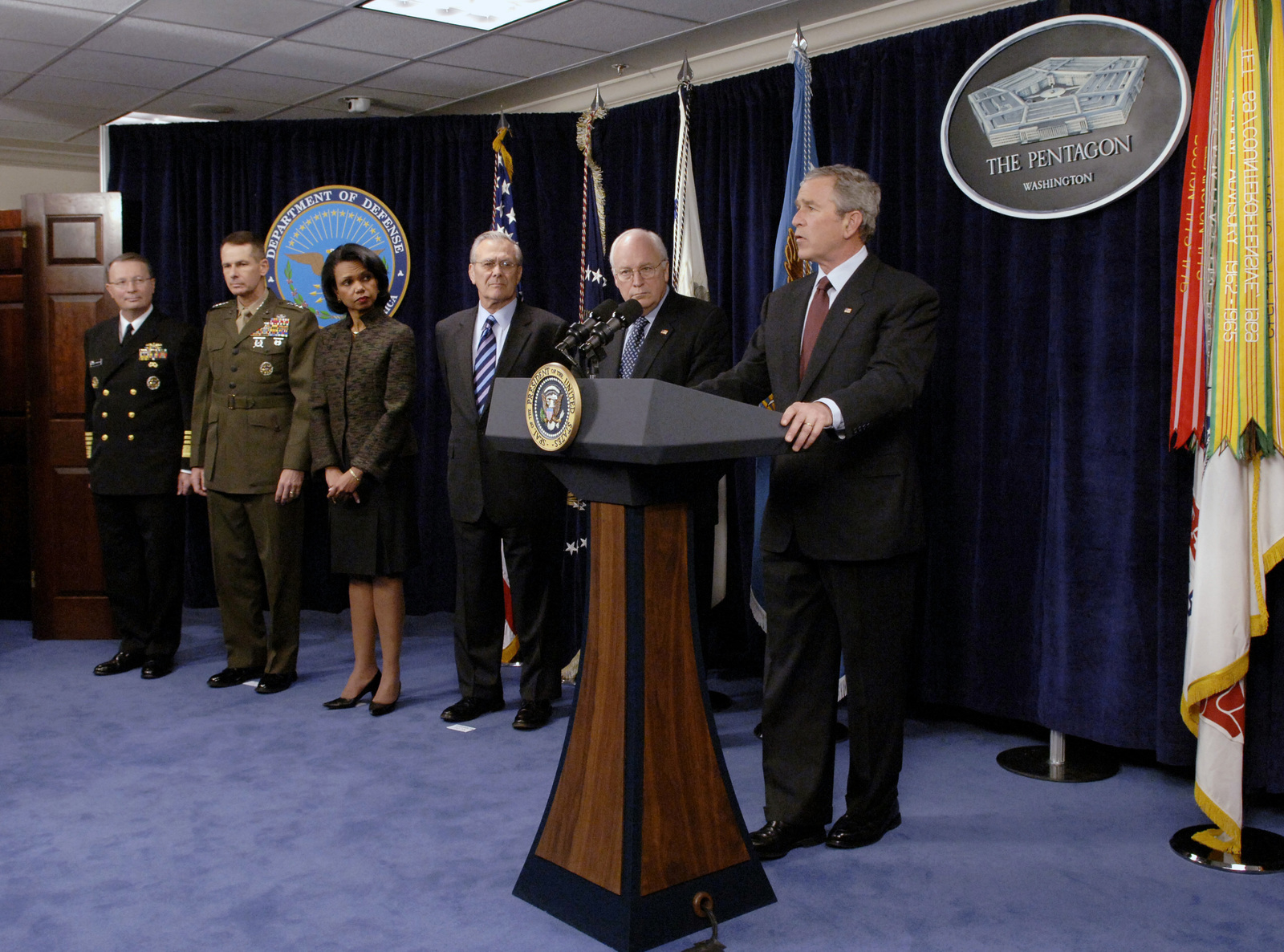What you’ll learn to do: describe the major economic, political, and social issues of the early 21st century

Figure 1. President George W. Bush and his national security team gather in the Pentagon’s Executive Support Center for briefings on the latest developments in Iraq, Afghanistan, and the war on terror.
The War on Terror was a centerpiece in the race for the White House in 2004. The Democratic ticket was headed by Massachusetts senator John F. Kerry, a Vietnam War hero who entered the public consciousness for his subsequent testimony against it. Kerry attacked Bush for the ongoing inability to contain the Iraqi insurgency or to find weapons of mass destruction, the revelation and photographic evidence that American soldiers had abused prisoners at the Abu Ghraib prison outside Baghdad, and the inability to find Osama bin Laden. Kerry’s campaign also highlighted that many enemy combatants who had been captured in Iraq and Afghanistan were “detained” indefinitely at a military prison in Guantanamo Bay in Cuba. “Gitmo” became infamous for its harsh treatment, indefinite detentions, and torture of prisoners. Bush defended the War on Terror, and his allies attacked critics for failing to “support the troops.” Bush won a close but clear victory.
Bush’s second term saw the continued deterioration of the wars in Iraq and Afghanistan, but Bush’s presidency would take a bigger hit from his perceived failure to respond to the domestic tragedy that followed Hurricane Katrina’s devastating hit on the Gulf Coast. Bush also made waves with policies about education, and heated debate about immigration, gay marriage, and climate change became commonplace in the early years of the twenty-first century.
Candela Citations
- Modification, adaptation, and original content. Authored by: Nikki Winans for Lumen Learning. Provided by: Lumen Learning. License: CC BY: Attribution
- US History. Provided by: OpenStax. Located at: http://openstaxcollege.org/textbooks/us-history. License: CC BY: Attribution. License Terms: Access for free at https://openstax.org/books/us-history/pages/1-introduction
- US History. Provided by: The American YAWP. Located at: http://www.americanyawp.com/text/30-the-recent-past/. License: CC BY-SA: Attribution-ShareAlike
- President George W. Bush and his national security team gather in the Pentagon's Executive Support Center. Authored by: Helene C. Stikkel. Located at: https://nara.getarchive.net/media/us-president-george-w-bush-foreground-and-his-national-security-team-gather-4f03d8. License: Public Domain: No Known Copyright